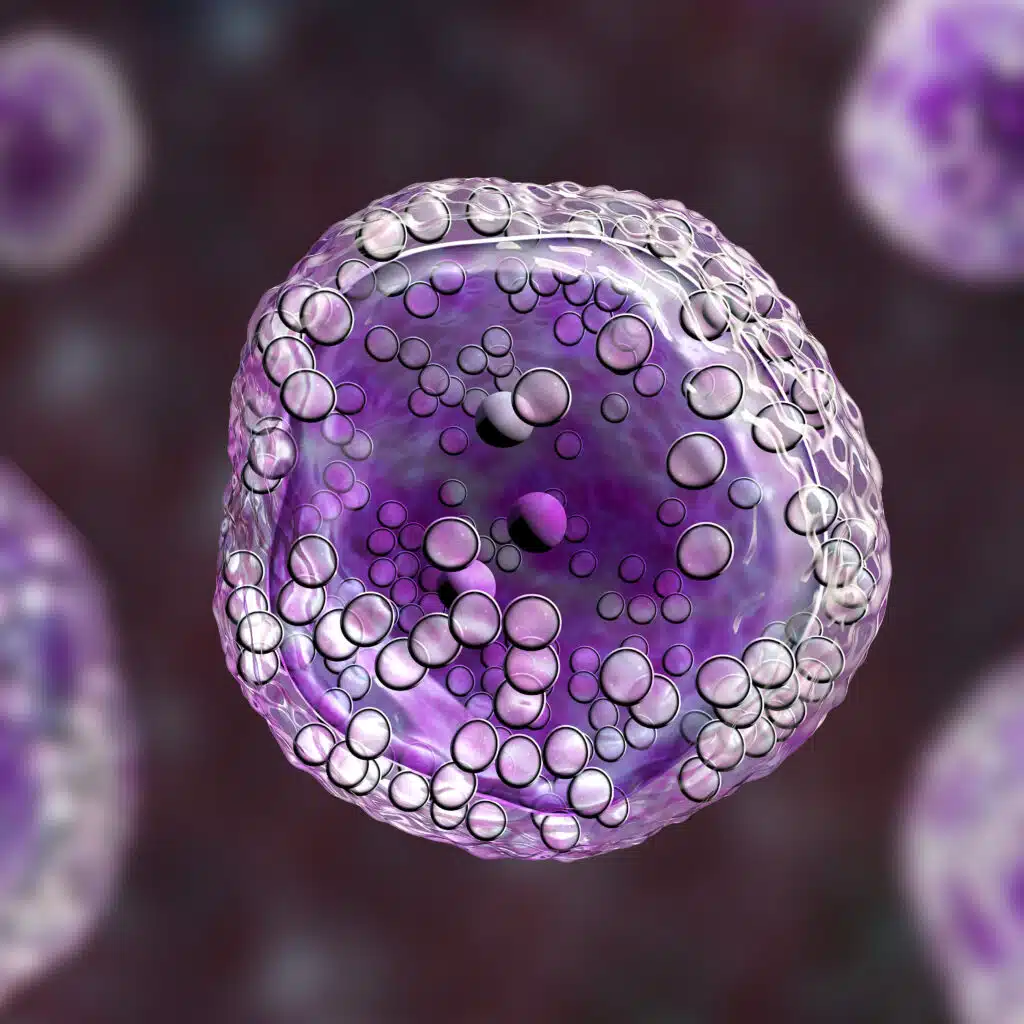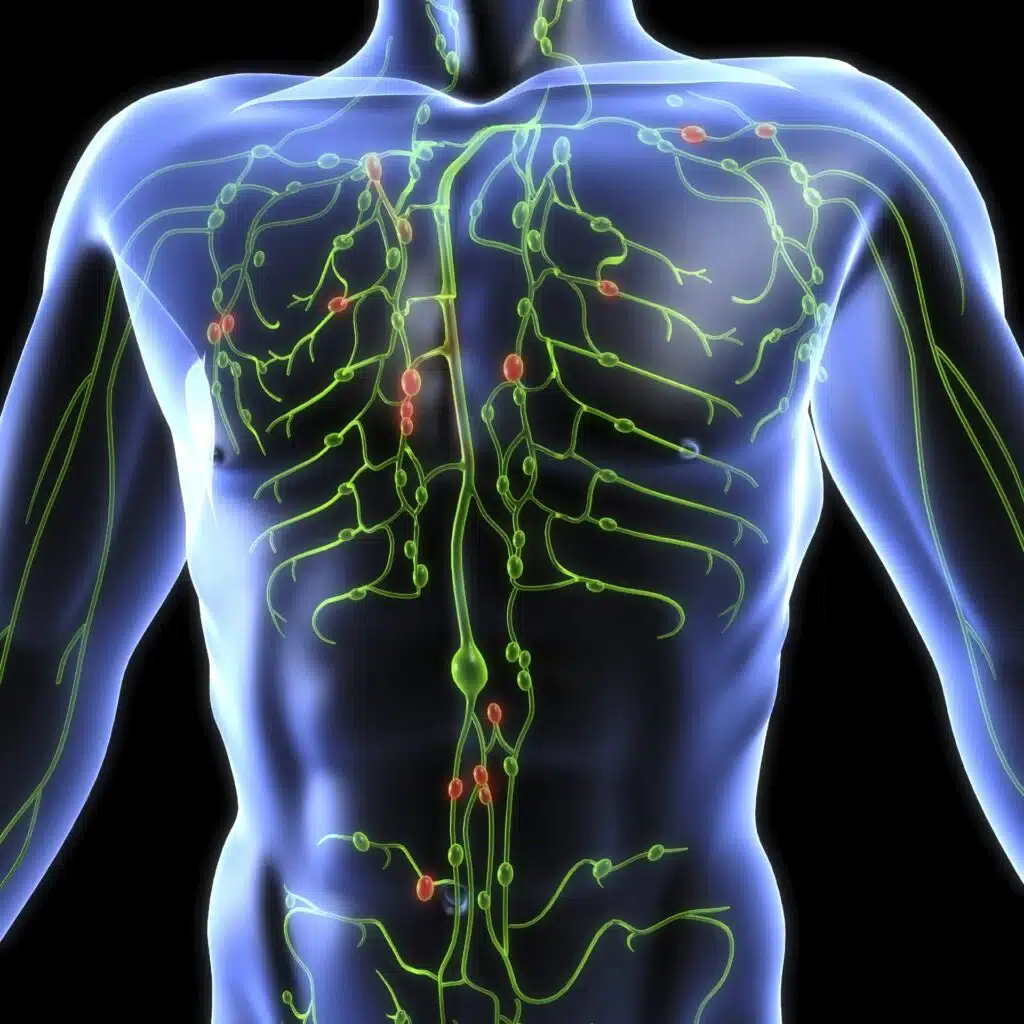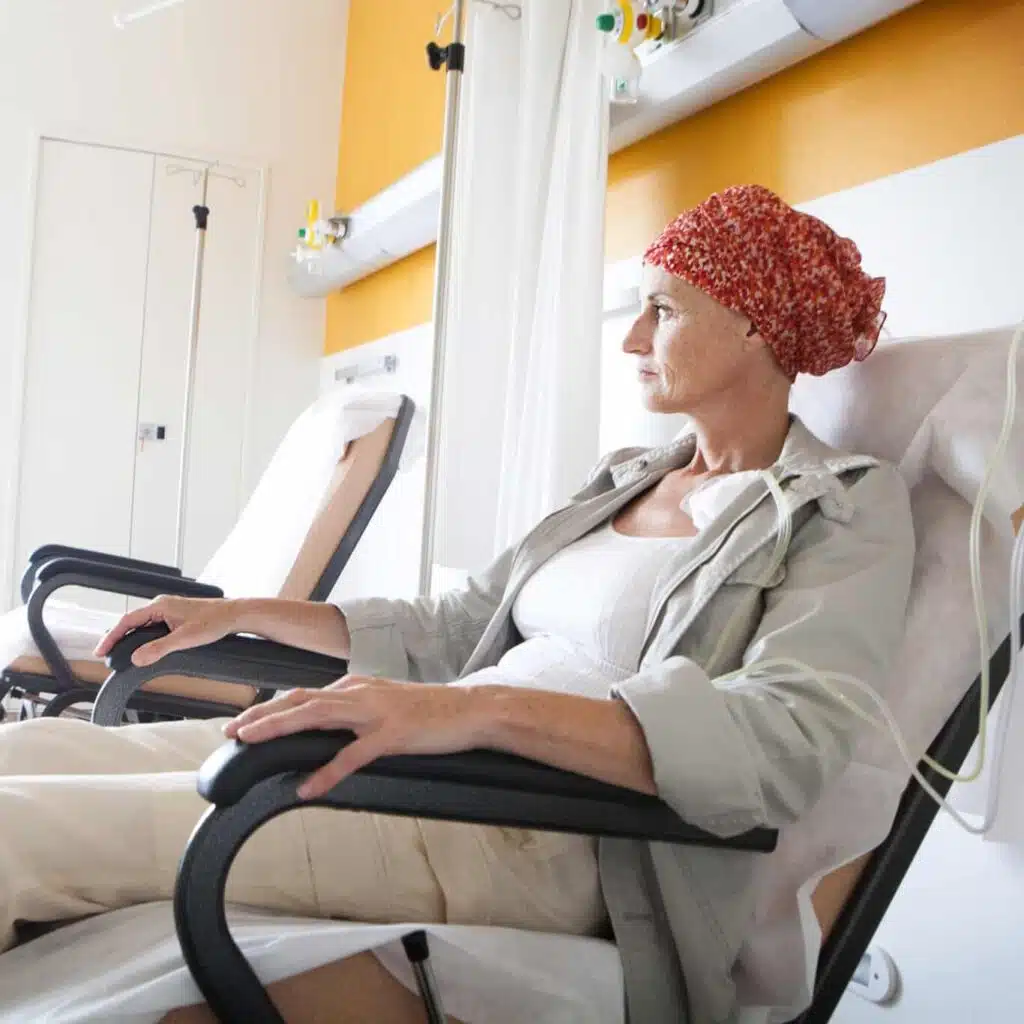
Understanding Lymphoma
Lymphoma and the Immune System
Lymphoma is a cancer that starts in a lymphocyte, a type of white blood cell. These white blood cells work together with other cells in the immune system to defend the body. Lymph nodes are part of the lymphatic system and typically are the sites in which the body develops an immune response to viruses and bacterial infections. There are three main types of lymphocytes:
- B lymphocytes (B cells) — B cells make antibodies to fight infections.
- T lymphocytes (T cells) — There are many types of T cells. Some help B cells make antibodies, some attack and kill infected cells, and others help control or regulate the way other parts of the immune system fight infections.
- Natural killer (NK) cells — NK cells attack and kill cancer cells and virus-infected cells.
An important component of the body’s immune system is immunoglobulins, also known as antibodies. Immunoglobulins are proteins that are produced by B cells. Immunoglobulins recognize and attack particular antigens (cell markers or other proteins) by sticking to viruses, bacteria, or other foreign substances in the body.
Immunoglobulins A, G and M
There are five major classes of immunoglobulins: IgG, IgM, IgA, IgD, and IgE. However, for lymphoma and CLL patients, only two types of immunoglobulins are closely monitored:
- Immunoglobulin G (IgG) are the most abundant type of antibody that are found in the body’s fluids. IgG is the body’s main defense against viruses or bacteria.
- Immunoglobulin M (IgM) circulates throughout the blood and helps fight infections.
Monitoring Immunoglobulins Levels
Since lymphoma/chronic lymphocytic leukemia (CLL) are cancers that affect B cells, it is important to monitor immunoglobulin levels. A blood test can determine the status of the body’s immunoglobulin levels and the body’s ability to fight off harmful pathogens. Blood tests, age, overall health and other factors can help health care providers determine the best treatment options for a particular patient.
If a blood test result shows low IgG levels, the body’s immune system may have a weakened ability to fight infections, especially bacterial ones. An elevated IgM may be associated with Waldenström macroglobulinemia, a type of Non-Hodgkin lymphoma. Therefore, a blood test is important to monitor IgM levels in these patients.

Classes of Blood Cells
The blood is made up of blood cells in a liquid called plasma. Blood cells are made in the bone marrow. Bone marrow is the soft, spongy area inside most bones.

The Lymphatic System
The lymphatic system is a circulatory system that is made up of a spidery network of thin tubes called lymph vessels.

Cancer Treatment and Immune Safety
Cancer treatments are designed to help the body fight cancer by identifying antigens on cancer cells. However, treatments and maintenance therapies can affect one’s immune system.
